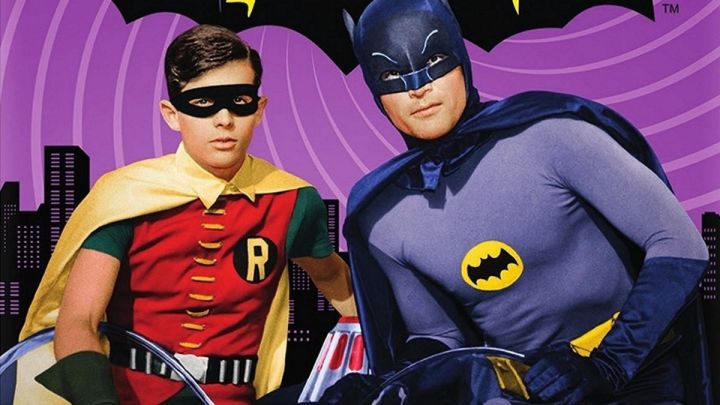As one of the greatest superheroes of all time, Batman has been the subject of multiple big-screen adaptations, each attempting to bring something new to his already complex mythos. The latest entry in this venerable franchise, Matt Reeves’ highly anticipated The Batman, is a neo-noir take that puts the world’s greatest detective and his legendary skills front and center. Critics are calling it the best comic book movie since The Dark Knight, which is still the barometer against which all comic book adaptations are measured.
But what makes a good Batman movie? Faithfulness to the ever-changing source material, compelling villains, and ambitious production values contribute to a successful adaptation, but the Dark Knight invites intricacy. Dating back to the 1960s, fans have seen all manner of takes on Batman, from the pulpy and colorful to the aggressively dark, from merely decent to quite good. Each Batman movie is memorable in its own way, but a few rise above the genre’s conventions, redefining what audiences expect from a comic book movie — and Batman himself.

10. Batman & Robin (1997)

Camp and superheroes get along just fine, so long as both parties are on the same wavelength. The Batman series of the 1960s embraced camp, finding strength in its pulp, something Joel Schumacher’s movies failed to do. The toyetic and absurd Batman & Robin, a shameless attempt to maximize merchandising grosses, marked the complete decline of the franchise.
For all its colors and over-the-top antics Batman & Robin is dull and uninspired; it doesn’t know what it wants to be and is often multiple things at once. Arnold Schwarzenegger and Uma Thurman know exactly the kind of film they’re making and jump at the chance to be as hammy as possible. On the other hand, George Clooney plays a self-important Bruce Wayne who seems painfully out of place, creating a Batman that seems defeated for all the wrong reasons.
9. Batman Forever (1995)

Schumacher’s first Batman effort, Batman Forever, attempted to mix the cartoonish aspect of the comics with the dark and gothic aesthetic Tim Burton imbued to the series’ first two entries. The result is a loud and overly long, yet serviceable film that lives and dies with Jim Carrey and Tommy Lee Jones, who both ham it up as the Riddler and Two-Face, respectively.
Despite its silliness, Batman Forever tries to flesh out the Bruce Wayne persona more than the Burton films ever did. The film gives Bruce far more agency than most other big-screen adaptations, and Val Kilmer does a surprisingly good job embodying it. Yet Batman Forever never quite rises above other Batman adaptations because it never tries. It’s a film that sits perfectly happy somewhere between mediocrity and affability, not quite forgettable but far from memorable.
8. Batman (1966)

Holy movie adaptations, Batman! The 1966 movie Batman is an ode to camp from a time when “serious” comic book movies weren’t even an option. Colorful, ridiculous in the best possible ways, and innocent to the point of hilarity, the film dignified camp in a way few other movies have, before or since.
It might be easy to disregard the film, especially if judged with a jaded 2022 eye. It features no high stakes, no complex characterization, no between-the-lines subtext. However, Batman exists as the perfect representation of its time’s sensibilities — swinging ’60s escapism brought to life by the Caped Crusader and his rogues, gallery. There is natural ridiculousness that comes with a grown man dressed as a bat, and Batman not only understands and acknowledges that, but celebrates it.
7. The Dark Knight Rises (2012)

Christopher Nolan had big shoes to fill following the overwhelming success of The Dark Knight. He returned to Gotham for a third time to give proper closure to his Batman saga, delivering a film that, against all odds, ties his uber-realistic story in a neat bow — it’s a victory lap if there ever was one. But Nolan also out-Nolans himself, coming short of staging the French Revolution on the streets of Gotham.
The Dark Knight Rises is an imperfect film that falls apart once Bruce Wayne returns to Gotham; it’s big, loud, and perhaps too ambitious for its own good. Questionable casting choices and narratively convenient plotlines further bring the film down. Yet it’s hard to resent Nolan for wanting to give himself and his characters a pat on the back before riding off into the sunset. The Dark Knight Rises might not earn its uncharacteristically happy ending, but The Dark Knight trilogy does, and who can argue against that?
6. Batman (1989)

Burton took an already dark character and sunk him further into the gloom, visually, at least. Batman features a scenery-chewing Jack Nicholson as the Joker and Michael Keaton as Batman, one of the greatest strokes of against-type casting genius in Hollywood history. Like many Batman stories before and after it, Batman is far more intrigued by the Joker than the Caped Crusader, and it isn’t afraid to show it. However, it understands the duality of Batman’s nature and delivers a compelling portrayal of Batman and the man behind him, thanks largely to Keaton’s awkward charm.
Batman remains surprisingly divisive. Comic book purists clutch their pearls at the idea of Joker being responsible for Thomas and Martha Wayne’s murders, with good reason. Still, the film succeeds at introducing a new Batman for the late 20th century, one detached from the pulp of the 1960s version. Burton’s Batman is traumatized, cold, distant — a psychopath who might be just as dangerous as the criminals he hunts, if not more.
5. Batman Begins (2005)

Restoring Batman’s reputation following the catastrophe that was Batman & Robin was no easy feat, but Christopher Nolan rose to the occasion, delivering the definitive origin story for the Dark Knight. Batman Begins forever changed Batman’s destiny, for better and worse. The film’s hyper-realistic approach to masked vigilantism cemented several ideas into the Batman mythos, taking the character on the serious and self-important path it remains on to this day.
Batman Begins rests squarely on the strength of Christian Bale’s performance. An uneven Bruce Wayne but an excellent Batman, Bale perfectly fits Nolan’s version of Gotham, turning in a stoic and perpetually brooding take on the Caped Crusader. Batman Begins lags in the middle and features a frankly appalling performance by Katie Holmes — Nolan famously struggles with female characters. Still, a few lows aren’t nearly enough to overshadow that many highs.
4. Batman Returns (1992)

Grotesque, enthralling, and unapologetically horny, Batman Returns is Tim Burton’s masterpiece. A Grand Guignol take on Gotham City and its many freaks, Batman Returns puts the villains front and center, to the point where Batman becomes a secondary character in Penguin and Catwoman’s stories. By mixing one of the most unappealing villains ever with the antiheroine that represents the epitome of comic book sex appeal, Burton portrays the duality in Gotham City and within Batman himself.
Batman Returns relegates Keaton’s Batman to the sidelines, but hardly anyone can complain when Danny DeVito, Michelle Pfeiffer, and Christopher Walken are there to make up for it. Batman Returns is camp at its most artistic, a beautifully grotesque exploration of deeply human themes that never once forgets its comic book roots.
3. The Batman

Matt Reeves’ The Batman might very well be the best big-screen, live-action Batman story. The director takes a neo-noir approach to the character, presenting a morally corrupt and broken Gotham City ruled by fear. Robert Pattinson plays a struggling and haunted Bruce Wayne, an emo in the best sense of the word.
More Zodiac than The Dark Knight, The Batman is the first film that genuinely cares about the World’s Greatest Detective. Reeves’ Batman is a silent and carefully observant, an investigator straight out of a classic noir of the 1940s. Michael Giacchino’s masterful score and Zoë Kravitz’s melancholic take on Catwoman further enhance the story. Still, by actively choosing to not address Bruce’s pain and framing nearly everything through the Caped Crusader’s POV, The Batman can’t help but feel a little bit incomplete.
2. Batman: Mask of the Phantasm (1993)

Animation did a tremendous service to Batman’s legacy, presenting the ultimate version of the Dark Knight in the eyes of many. No further proof is required than Batman: Mask of the Phantasm, the 1993 animated movie that, in just over an hour, presents a more compelling origin story for Batman than films twice its length. Mask also puts Bruce’s love life front and center, depicting one of the best romances in the Batman mythos.
Mask of the Phantasm stands out as the only Batman film that’s more interested in Bruce Wayne than his masked counterpart. The Nolan movies popularized the idea that Batman is the real persona and Bruce Wayne is the alter ego, but Mask outright denies that, portraying Batman as the means to an end. Dark but never bleak, the movie deftly juggles themes like generational trauma, duty, and legacy, delivering one of the greatest Batman adventures and the best Bruce Wayne story ever told.
1. The Dark Knight (2008)

More a crime thriller than an outright superhero movie, The Dark Knight remains the best comic book adaptation by far. The film perfectly captures the very essence of the Caped Crusader, depicting a morally bankrupt Gotham that’s easy prey for the anarchist known as Joker. Featuring a tour-de-force by the late Heath Ledger, The Dark Knight is a rich and complex tale of men’s desperation, the nature of chaos, and the sense of powerlessness that comes with out-of-control escalation.
There could be an argument that The Dark Knight is a great Joker story rather than a great Batman one, and it would be right. Indeed, the film falls under the timeless trap of making the villain — not only Joker, but Harvey Dent, too — much more interesting and dynamic than the hero. Yet The Dark Knight remains a towering achievement, a modern tragedy that cements Batman as the hero who will sacrifice everything to get the job done.



